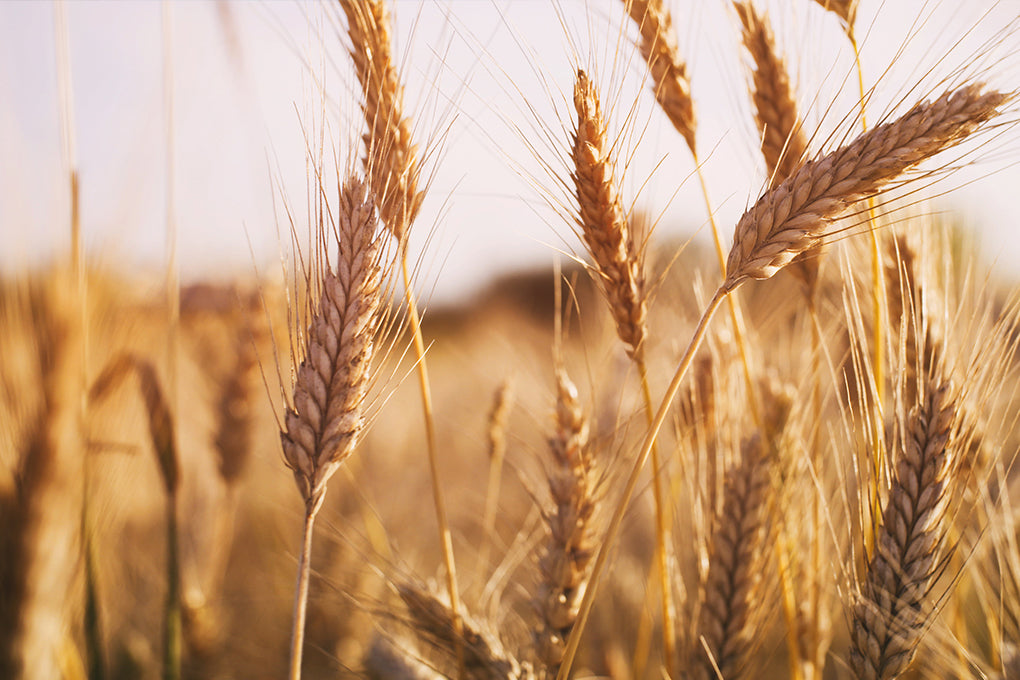Why dietary fibre is so essential for good health
25th June 2019 / Health
Why dietary fibre is so essential for good health
Emily Shannon

Latest figures from the National Diet and Nutrition Survey have confirmed that the average fibre intake in adults is just 19g per day; significantly lower than the government guidelines, recommending a 30g daily target.
The growing popularity of convenience and the rise in consumption of processed food mean that a large proportion of the population are not consuming enough dietary fibre. Fibre is known to play a key role in digestive health, helping to keep things moving and prevent constipation, but why is fibre really so important and what’s the best way to boost fibre intake?
What is fibre?
Dietary fibres are non-digestible carbohydrates, which include polysaccharides that humans can obtain from a variety of food sources. Dietary fibre helps to stimulate the small and large intestine as well as providing bulk and softening stools by retaining more fluid. Increased dietary fibre consumption has also been linked to a reduction in bloating and is known to help constipation.
The NHS recommends that adults consume 30g of fibre each day as part of a balanced diet. It is much easier to get your daily fibre intake if you try to consume fibre with every meal and include high fibre snacks too.
Dietary fibre can be found from several different food sources including:
- Wholegrains – such as whole wheat pasta, wholegrain bread and oats
- Fruit and vegetables
- Nuts and seeds
- Beans and pulses
Dietary fibre is most abundant in whole grains, so to increase the amount of fibre in the diet swapping white pasta, rice and bread to the whole grain alternative can really boost your fibre intake.
Recent studies have concluded that the dietary fibre that we consume provides more benefits than originally thought. As the role of fibre in the body is becoming further understood, its key role after the fermentation process within the intestine continues to be a hot topic.
Short-Chain Fatty-Acids
Humans lack the specific enzymes required to break down dietary fibres, so after consumption they are non-digestible. Initially they remain unaffected as they pass down the upper gastrointestinal tract, they are then fermented in the cecum and the large intestine.
The fermentation of dietary fibre results in the production of multiple groups of metabolites, primarily short chain fatty-acids or SCFAs for short.
Recent research suggests that SCFAs have a beneficial effect on the microbial community and have anti-inflammatory properties. SCFA production is directly correlated with intake of dietary fibre, therefore when a diet is lacking in dietary fibre the production of SCFAs is reduced.
Resistant starch
Resistant starch is a type of starch that the small intestine is unable to break down, as a result, resistant starch can be classified as a dietary fibre. There is an association between an increase in resistant starch and beneficial gut bacteria in a similar way there is an association between gut bacteria and fibre.
Resistant starch is naturally present in some foods, including bananas, potatoes and pulses but is now being produced or modified commercially and incorporated into some foods. Resistant starch has been shown to increase the production of SCFAs in the gut as well as modulating the composition of beneficial gut bacteria. In addition to this, there is also good evidence to suggest that resistant starch plays a role in glucose metabolism.
Prebiotic Fibre
Prebiotic dietary fibres are specific compounds that provide a growth source for beneficial gut bacteria. If you take probiotics, it is important to ensure you are also getting sufficient prebiotic fibre (like in our Symbiotic 7) It is now understood that gastrointestinal microbiota play a key role in human health. Inulin is a specific example of prebiotic fibre that occurs naturally in a number of different food sources which include:
- Leeks
- Asparagus
- Garlic
- Chicory
- Jerusalem artichokes
Increasing the amount of inulin rich vegetables will contribute to the daily fibre recommendations, which will promote the production of SCFAs through dietary fibre fermentation.
Maintaining a balanced diet that comprises of a variety of different fruits and vegetables, alongside wholegrains, nuts and pulses will increase both dietary fire and prebiotic fibre intake which will help to boost overall digestive health.
More reading:
Dietary fiber and prebiotics and the gastrointestinal microbiota
From The Blog
-

25th February 2025 / Health
Empowering Women’s Health: Key Supplements for Well-being
Women’s health is a lifelong journey, with each stage presenting unique nutritional and wellness needs. From maintaining energy levels to supporting hormonal balance and bone health, the right comb...
Read article -

17th February 2025 / Health
Empowering Women’s Health: Lifestyle Tips and a Key Supplement for Perimenopause and Menopause
NaomiWomen’s health evolves through various life stages, and the transition into perimenopause and menopause brings unique challenges. During these phases, hormonal fluctuations can lead to symptom...
Read article -

10th February 2025 / Health / Products
The Best Foods and Drinks to Help Your Body Recover from Burnout
Burnout is a growing issue in today’s fast-paced work culture, leaving many people feeling exhausted, overwhelmed, and depleted. While rest and self-care are essential, nutrition plays a crucial ro...
Read article



